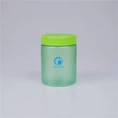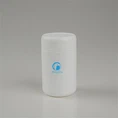When searching for reliable ways to store pills, supplements, or medications, you may come across various terms besides "pill container." But what exactly are the other names used in the industry, and how do different packaging types-especially plastic bottles-perform in these applications?
Let's explore the alternatives and see why plastic pill bottles remain a top choice across the pharmaceutical, nutraceutical, and healthcare industries.
Common Names for Pill Containers
"Pill container" is a broad term, but depending on region, industry, and purpose, it can also be referred to as:
Pill Bottle
The most common term in both retail and medical environments, especially in the United States.
Medicine Bottle
Often used in pharmacies or clinics, particularly for liquid medications or prescription capsules.
Pharmaceutical Container
A more technical or regulatory term used in the manufacturing and packaging industries.
Tablet Jar
Common in dietary supplement packaging, especially for larger quantities of tablets.
Capsule Bottle
Used when the container specifically holds capsules instead of tablets.
Vial
Usually refers to small glass or plastic containers, often for injectable medications or sample pills.
Dose Pack / Blister Pack
While not bottles, these are often alternatives to pill containers in prescription use.
Why Plastic Bottles Are a Popular Pill Packaging Option
Plastic bottles-especially those made from PET (Polyethylene Terephthalate) and HDPE (High-Density Polyethylene)-are widely used for pill and supplement storage. Here's why they outperform many other container types:
1. Durability & Safety
Plastic containers are lightweight and shatter-resistant, reducing the risk of breakage during transportation or daily use-unlike glass vials, which can be fragile and hazardous when broken.
2. Moisture & UV Protection
Plastic pill bottles can be designed with UV-blocking or opaque materials to protect sensitive supplements from light degradation. In combination with airtight seals, they also offer effective moisture resistance.
3. Cost-Effective for Mass Production
Compared to glass or aluminum alternatives, plastic is more affordable and easier to produce at scale, making it ideal for high-volume markets like vitamins and OTC medications.
4. Customization & Branding
Plastic bottles allow for various shapes, colors, and sizes, and can be easily customized with screen printing, hot stamping, or embossing-enhancing shelf appeal without sacrificing compliance.
Applications of Plastic Pill Containers
Nutraceuticals (Capsules, Softgels, Tablets)
Ideal for retail supplements and export packaging.
Prescription Medications
Common in pharmacy dispensing, especially HDPE bottles with child-resistant caps.
Over-the-Counter (OTC) Products
Widely used for products like pain relievers, allergy pills, and daily vitamins.
















